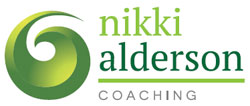You’re Worth It!
Gender Pay Gap
As a 40+ year old woman, having taken extended maternity leave and experienced the perceived “negative impact” on career progression and income, I wasn’t surprised to learn the gender pay gap in UK for women in their 40s is around 25%
Women in Business Network
Anecdotally, whilst networking within a Women in Business group, I have met many women who suggest a lack of formal pay structure or appraisal system within their work place has contributed to a lack of salary transparency and the common phenomenon of higher pay for male colleagues doing the same job, with less experience, than their female counterparts.
“Fair” Pay
So many recent high profile examples, like Cary Gracie at the BBC and Jennifer Lawrence, Hollywood Actor, have caused me to reflect on my own experiences starting a business, where it has been necessary to identify my own value, and which can apply equally to those in employment looking to negotiate fair pay.
Here, then, the invaluable steps I have applied to knowing my worth and, more importantly, how to get it:
-
Identify your value
Firstly, consider what is the standard “everyday” stuff that you do for your client/ employer, that every other person within your sector would do?
Then consider: What is it YOU do that makes you stand out as making a material difference to them? What is your USP or the “value-added” stuff that sets you apart and causes you to be valued at a different rate than those others? What qualifications, skills, and life-experiences do you have, over and above, say, an 18 year old school leaver, that sets you apart, making you good at what you do?
I found this a useful exercise when deciding my fee structure, and considered a number of factors, such as target client base, the frequency with which I would coach them, previous experience, qualifications etc.
You might find it helpful to work out an average fee within a certain range from the “market rate”. It goes without saying that experienced practitioners charge substantially more, the most junior substantially less.
With all those factors in mind, pitch your fee accordingly, without devaluing yourself.
-
Get comfortable with your value
Once you have identified your own value, you need to get comfortable with the feeling that you are worth it.
Before finalising my prices, I was encouraged to consider the fee structure of other coaches. As is often the case with comparisons, however, for me this exercise became unhelpful: I had sufficient confidence in myself to realise that when it came down to it, and I looked at THEM, of course none of them were ME, with my unique experience, my qualifications, my particular life-path to this specific point in time. The question should simply have been “what did I feel I was worth?”
A client of mine, albeit coming from a place of under-confidence, experienced similar. She had been holding back on making a price increase to her services, worrying that she wasn’t worth it and that clients would vote with their feet if she asked for more. On becoming aware though that others offering a similar service to her were charging substantially more, she introduced what she initially felt was a significant increase to her usual rate. Despite her initial fears, once she got comfortable with what she felt she was worth, and gained the confidence to stick with it, she found that not one single client expressed any disquiet, and ALL remained loyal.
Consider whether then, as in that example, your own view of your value is influenced by fact or rather your own self-limiting beliefs and negative mind-set.
Get comfortable with fact; your confidence will follow.
-
Negotiate confidently and effectively for your value
Why are we afraid of pricing ourselves out of the market? In fact, charging too little can negatively impact upon our credibility. Knowing our own financial worth, and asking confidently for it, generates confidence not only in ourselves but in others. Pricing too cheaply can lead others to undervalue our services.
Often “free ticket” events struggle for participants on the day because of the ease with which people drop out, over and above events that have charged even a nominal fee, instantly adding value, which participants respond to, attending because they feel they have a vested interest in so doing. Look at the different way we treat our most prized, expensive evening wear, compared to knockabout, ten-a-penny day wear. In the same way, employers, colleagues, client and customers are more likely to treat your services, and you, with more respect where prices reflect your own value.
Don’t let fees hold you back – pick a fee and run with it. You can always adjust it with subsequent clients, offer introductory rates or member discounts to those in professional bodies etc, and think creatively about how you can negotiate even better deals, eg. Through retainer rates.
“The key to success is to start before you are ready…” and with that in mind, I’d encourage you to just “Go for it!”
https://www.facebook.com/nikkialdersoncoaching/?ref=bookmarks

